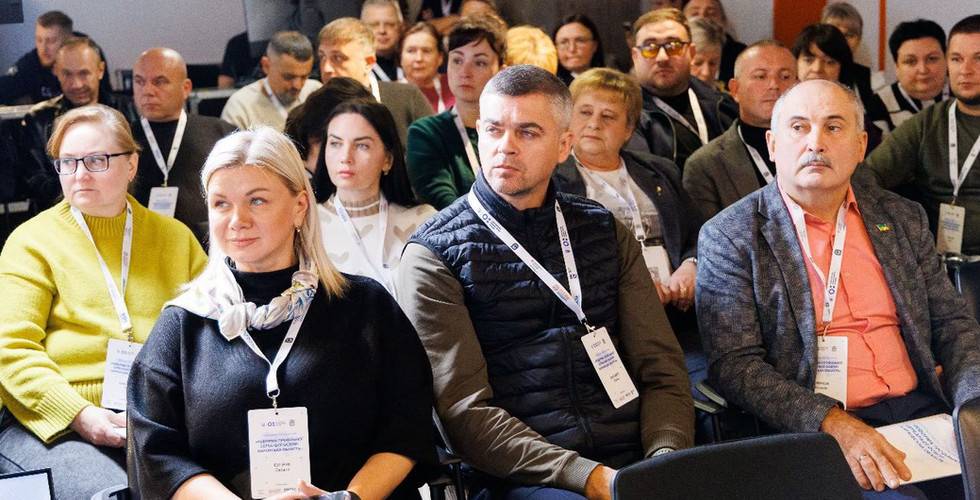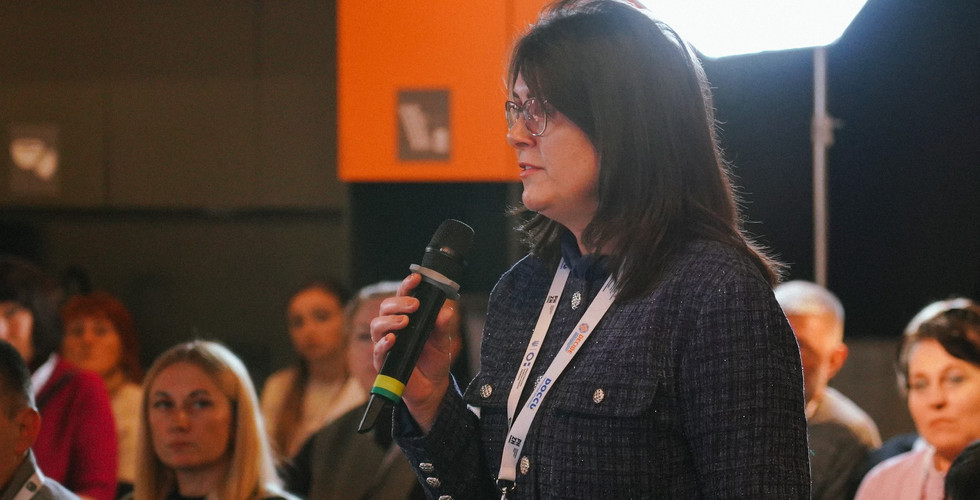Kharkiv region prepares for implementation of new senior school
- Катерина Лукомська
- Oct 21, 2025
- 4 min read
On 17 October, the Ministry of Education and Science of Ukraine, in cooperation with the DECIDE Project and local authorities, held a public discussion on the reform of specialised high schools in Kharkiv. The Kharkiv region has become the 23rd region to host these meetings. To date, more than 1,260 communities from across Ukraine have participated in these discussions.
The event in the Kharkiv region was attended by Nadiia Kuzmychova, Deputy Minister of Education and Science of Ukraine, Vita Kovalska, Deputy Head of the Kharkiv Regional Military Administration, Valeriia Dziuba, Deputy Head of the Kharkiv Regional Council, Valentyna Poltorak, DECIDE Project Manager, community leaders and other officials.

For the Kharkiv region, which is currently on the front line, implementing the reform poses particular challenges. The educational process often has to be organised in shelters or remotely. The priority for the local authorities is to ensure a gradual and safe transition to blended learning for students. It is planned that the construction of 38 protective structures will be completed by the end of this year, providing blended learning opportunities for an additional 40,000 school students.
There are currently 577 general secondary education institutions operating in the Kharkiv region, 72 of which are full-time. A total of more than 194,000 students study in the region, almost 40,000 of whom are enrolled in mixed-mode education.
This year, one remote lyceum is taking part in the pre-pilot reform of senior secondary education in the region. The Ministry of Education and Science plans to use this example to develop mechanisms for implementing the reform in the context of distance learning.
Nadiia Kuzmychova, Deputy Minister of Education and Science of Ukraine, thanked the educators of the Kharkiv region for their perseverance and systematic work in developing education. She then outlined the key tasks necessary for implementing senior school reform:
‘Today’s meeting marks another important step in our joint progress towards a new senior school. The Kharkiv region has demonstrated consistency and a systematic approach, as well as a desire to take action – and these are precisely the factors that will determine the success of the reform. Our shared goal is to provide every child with high-quality, accessible specialised education, regardless of where they live or what type of education they receive. The reform aims to create conditions in which school students can consciously choose their educational path – whether academic or vocational – with an understanding of their own interests and opportunities. We have two years of active preparation ahead of us before the reform begins in 2027. And this time it is not about waiting, but taking action: setting up a network of lyceums, training teachers, and updating curricula. It is a joint effort involving the state, communities, and educators. Thanks to dialogues such as today's, we are gradually building a space for quality education for our children.’

The network of academic lyceums, vocational and technical colleges in the Kharkiv region within the Project was approved by the regional council in August 2025. However, this may change due to the course of military operations, damage to infrastructure, and demographic processes.
Vita Kovalska, Deputy Head of the Kharkiv Regional State Administration, remarked:
‘As of today, the network of academic lyceums and vocational and technical colleges submitted by communities comprises 215 institutions: 163 in the Kharkiv district, 16 in the Chuhuiv district, 8 in the Bohodukhiv district, 7 in the Izium district, 5 in the Kupiansk district, 6 in the Lozova district, 6 in the Berestyn district, as well as 4 institutions of the regional council and 132 in the city of Kharkiv. This network was approved at the recent session of the regional council in August 2025, but we will continue to adjust it depending on the capabilities of communities and the needs of students.’

Valeriia Dziuba, Deputy Head of the Kharkiv Regional Council, emphasised the importance of reform for the development of the region:
‘Today, we are not only talking about a new model of the educational process, but also a change in the philosophy of education – shifting from a universal system to the individual development of each child. This is particularly relevant for border regions such as the Kharkiv region. After all, issues such as class sizes and logistics affect not only education, but also demographics and the region’s recovery. We want our children to have access to quality education, regardless of the circumstances. The Kharkiv region has always been a cradle of science and innovation, and I am confident that education will help us to preserve this potential,’ said Valeriia Dziuba, Deputy Head of the Kharkiv Regional Council.
Valentyna Poltorak, the Swiss-Ukrainian DECIDE Project Manager, spoke about the strategic vision for reform:
‘The reform is a lengthy, large-scale process that affects the majority of our country’s citizens and requires the involvement of all stakeholders, including state authorities, communities, educators, students, and parents.
The draft Reform Strategy anticipates the implementation of all stages by 2033, allowing us to evaluate the results in 2034.
One of the key areas of reform is the development of a career guidance system in basic secondary schools, to give every child the opportunity to choose their career path consciously, in line with their interests and talents, while also taking into account the real needs of the labour market in their community, region, and the country as a whole.
‘That is why we are launching a national pilot programme to implement such a system, covering more than 300 communities over the next two years. Despite the challenges posed by the war, 24 communities in the Kharkiv region have applied to take part. Together, we will learn how to foster collaboration between education, business, and state authorities, and we will train career advisors for schools and community-based career coordinators – all for the sake of Ukrainian children’s future in Ukraine.’

Public discussions taking place across Ukraine have become an important means of facilitating dialogue between the state, communities, and educators. They provide an opportunity to consider regional differences, find practical solutions, and ensure the new higher secondary school system is implemented effectively.
Despite the challenges of being a frontline region, the Kharkiv region shows that the development of education remains a priority, even during wartime. The combined efforts of the state, communities and the education sector form the foundation upon which Ukraine's future system of specialised education will be built.
The DECIDE project is implemented by NGO DOCCU and PHZH International Projects in Education with the support of the Embassy of Switzerland in Ukraine.
To view the photo gallery, click on the photo.





















